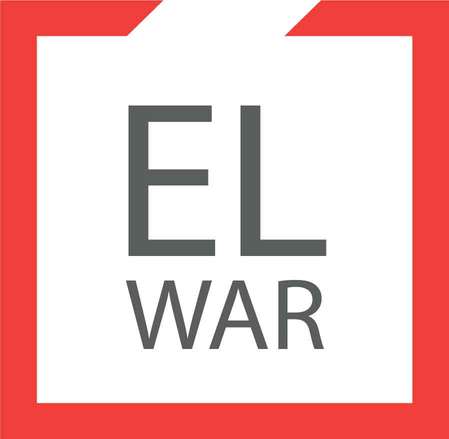Joined the University of Luxembourg as an Associate Professor of Political Science and ERC Fellow in April 2017. Prior to joining the university, he was a Junior Visiting Fellow at the Institut für die Wissenschaften vom Menschen in Vienna (2008), Fellow of Clare College, University of Cambridge (2008-2017), and a Leverhulme Early Career Research Fellow (2012-2016) at Cambridge’s Department of Politics and International Studies. He earned his PhD in political science (with distinction) from Yale University in 2009, and his BA in political science and international business (summa cum laude) from Illinois Wesleyan University. His work is situated at the crossroads of comparative politics, international relations, and political economy, with a strong grounding in historical research. In addition to the European Research Council, Josip Glaurdić’s work has been supported by the Leverhulme Trust, the Isaac Newton Trust, Robert Bosch Stiftung, Open Society Institute, Fox International Fellowship, as well as Yale University’s Falk Fellowship and Sterling Fellowship. He is the author of The Hour of Europe: Western Powers and the Breakup of Yugoslavia (Yale University Press, 2011).

Josip
GLAURDIĆ

Christophe
LESSCHAEVE
Joined the University of Luxemburg in October 2017 as a postdoctoral research associate. He earned his PhD in political science in 2016 at the University of Antwerp. In Antwerp he worked on the PartiRep-Project, an Interuniversity Attraction Pole (IAP) funded by the Belgian Science Policy. His research interests focus primarily on representation, issue congruence between voters and political elites, and voter behaviour. His doctoral dissertation studied the inequality in opinion congruence between privileged and underprivileged voters in Belgium. His work has been published in journals such as West European Politics, Electoral Studies, and Party Politics. During his PhD, he did a three-month research stay, funded by the Fonds voor Wetenschappelijk Onderzoek (FWO), at the University of Leiden. Christophe Lesschaeve has also engaged in projects outside academia that focus on the linkage between voters and political elites. He helped develop the highly successful online voting advice applications (VAA) Stemtest and Test Électoral for the 2014 elections in Belgium. These VAAs are currently being used in high schools to help pupils familiarise with Belgian political parties and their policy positions.
At ELWar, he focused on investigating how the legacies of war affect the political views of voters and their behaviour. To this end, he worked primarily with survey data of over 15,000 respondents from the region, which included detailed measures of party preferences, war experiences, and several experiments.

Michal
MOCHTAK
Was a Postdoctoral Research Fellow at the Institute of Political Science, University of Luxembourg. Prior to joining the university in October 2017, he was a Visiting Fulbright Scholar at the Department of Political Science, Yale University (2017), a Cvachovec Fellow at the Munk School of Global Affairs, University of Toronto (2017), and a Research Fellow at the International Institute of Political Science, Masaryk University (2012-2017). He earned his Ph.D. at Masaryk University in 2015 by defending his thesis on the roots of electoral violence in the Western Balkans (with honours). His research focuses on the challenges to democracy in Central and Eastern Europe with emphasis on the conflict potential of elections, modern forms of authoritarian rule and deconsolidation processes. He is the author of Electoral Violence in the Western Balkans. From Voting to Fighting and Back (Routledge; 2018). His papers on electoral violence and democratisation have been published in a variety of international peer-reviewed political science journals (e.g. Terrorism and Political Violence, Problems of Post-Communism, Journal of International Relations and Development, Nations & Nationalism, Southeast European and Black Sea Studies, Democracy and Security, or World Political Science). See his personal website here.
As part of the ELWar project, he was responsible for the pillar focused on political parties and political elites and the position of war in their formation and discourse. He was working on implementation of cutting edge natural language processing tools (NLP) in order to understand how politicians talk about war, how they misuse it for political gains, and what position does war have in political arena in general.

Daniela
JANEVA
Has a Master’s degree in International Relations and Diplomatic Affairs from the University of Bologna. She has extensive knowledge in the history of South East Europe and the dissolution of Yugoslavia. She has many years of experience in EU project management and has been in charge of the management of many projects financed under different EU programs such as: Horizon 2020, FP7, Life Long Learning, Erasmus +. During the last eight years, thanks to her experience with public institutions, private sector and NGOs, she has developed excellent knowledge in research data management. She has been also responsible for projects’ public affairs activities with the European Parliament, the European Commission and other European organizations working on European Affairs and for building a strong network of institutional contacts and alliances. She joined the University of Luxembourg in November 2018 to provide research support to the project ELWar.

Campus Belval
Maison des Sciences Humaines
11, porte des Sciences
L-4366 Esch-sur-Alzette
elwar@uni.lu


